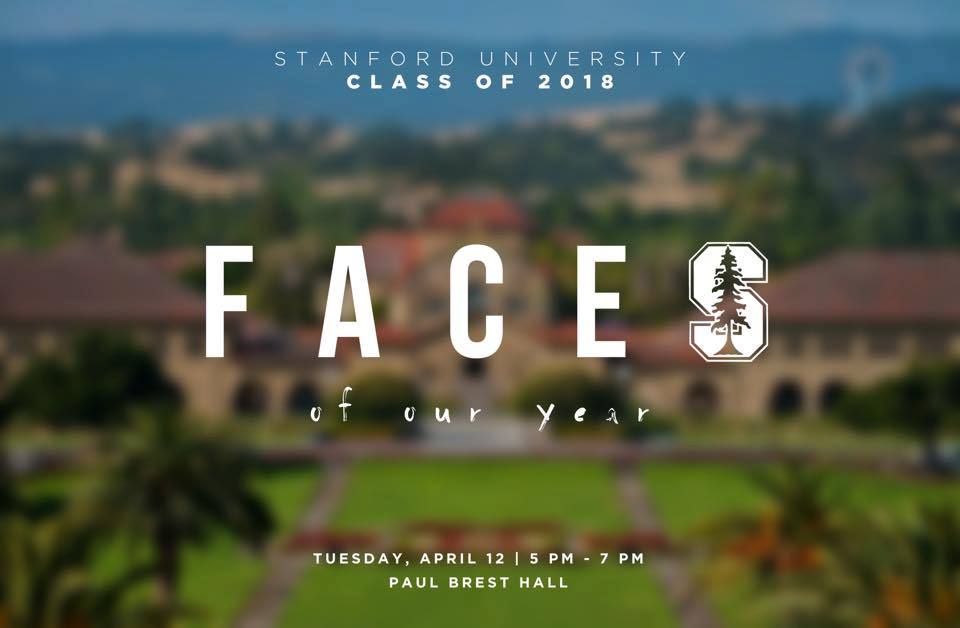When I heard about the initiative to begin a FACES-like event for each class at Stanford, I was both hesitant and elated. Campus politics have been turbulent lately, and if not done right, I worried that “FACES of Our Year” would be another callous attempt to “start campus conversations.”
Freshman year FACES had been breathtaking in that it was raw and transformative at a time when I was vulnerably naïve. I remember talking in the dark courtyard behind my freshman dorm for the debriefing/discussion after FACES, and the words “privilege” and “class” rolled around on my tongue like marbles, awkwardly new.
When I found the courage to talk, my voice embarrassingly cracked, and everyone in my group kind of tutted sympathetically at me. Someone even patted my arm clumsily. I wanted to melt into the ground, because it wasn’t that I had never thought about my privilege before. It was just that my emotional self-control — already on edge with new dorms, new friends, new everything — had kind of shattered after FACES. Mostly, I just remember excitedly texting my best friend back home: “OMG we just had a super long discussion about privilege and feminism and classism!!!” Finally, I thought, I had found a place where people were willing to talk about these topics.
But today I was hesitant because the speech on campus had turned hurtful, and I was no longer a high-strung, anxious freshman. I wondered if FACES would still emotionally move me.
Moreover, I had always had my doubts about the ethics of FACES. To me, there was always a sense of guilty voyeurism to hearing someone’s deepest, darkest secrets on a stage. I also felt guilt at the relief I felt after FACES. I walked away thinking, “I guess my life isn’t so bad after all.” But people weren’t sharing their stories for me to feel better about my life. Their stories weren’t benchmarks for me to compare my own or tragedies for me to view from a vantage point a mile away.
I guess my biggest problem was that I viewed the FACES stories with sympathy, but not empathy.
So, when I walked into FACES of Our Year: Class of 2018, I walked in with an open and critical mind. At first I was impressed. The sophomore cabinet had taken care to arrange the setting as an intimate dinner, and the peer facilitators and Bridge/CAPS handouts stationed at each table were a nice touch. (Not to mention the fun incentives of Coupa gift cards and catered food.)
The four stories were well-executed, eloquent and thoughtfully chosen. Most of them focused on aspects of mental health and one on race. I wish they had chosen at least one male speaker for more of a balance (given societal ideas about masculinity equating to not admitting weakness or emotion, I wonder if that would have encouraged the men in the audience to more deeply connect), but overall, they delivered.
I didn’t cry, which surprised me, but I realized during the after-dinner discussion, how different I was from the girl who listened to FACES in Memorial Auditorium during NSO. I had lived and experienced many of the issues the speakers tackled in their speeches since freshman year, and I had survived. I didn’t need the messages of hope and acceptance they delivered.
But as I watched one student after another slip through the doors in the back of Paul Brest Hall in the middle of the FACES speeches, red-eyed and trembling, and then return to their tables to be greeted by comforting hugs, I realized that it didn’t matter what I thought about FACES. Because as long as one person benefitted from this event, as long as one sophomore in the audience heard their peers confess a secret pain and thought, “Yes, me too, I’m not alone,” then this event was successful and ought to continue every year.
Contact Samantha Wong at slwong ‘at’ stanford.edu.
